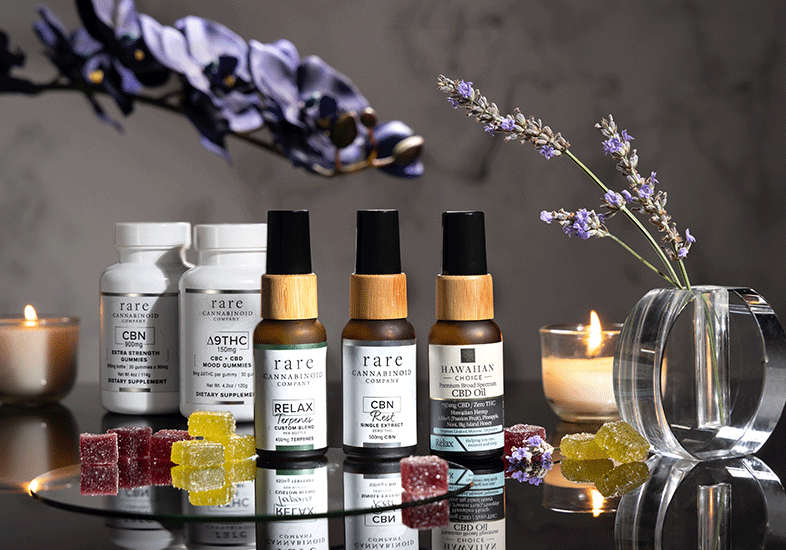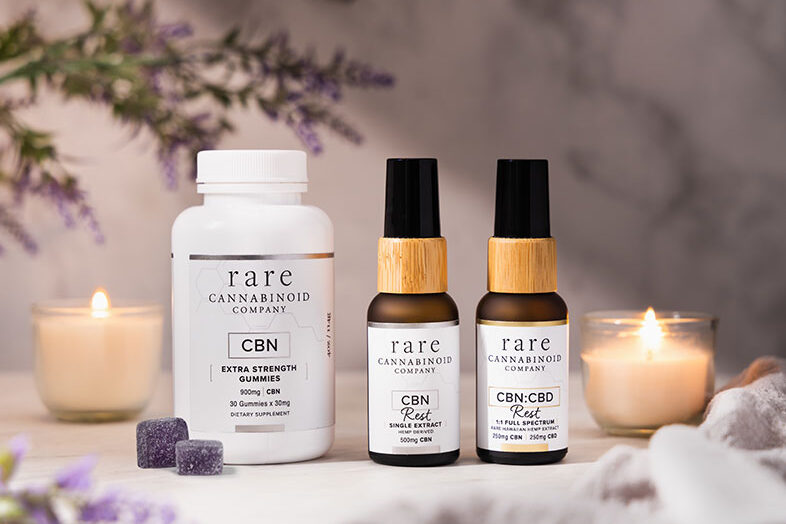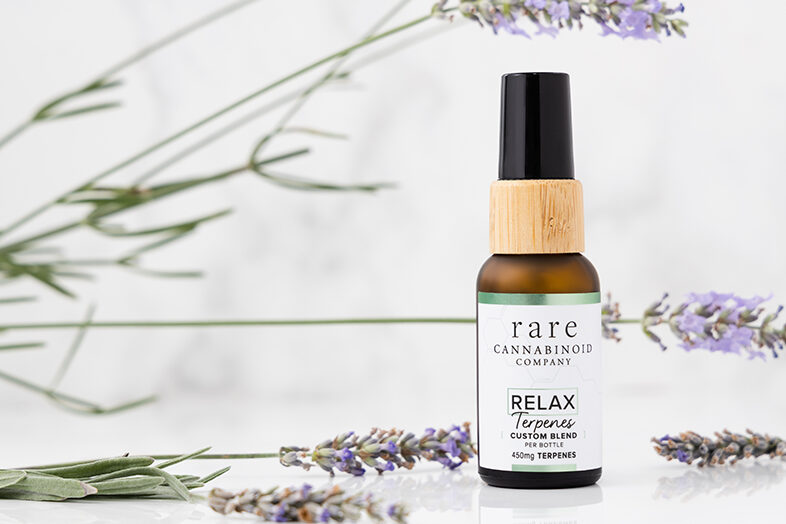
CBD for sleep problems? What cannabinoids are best for sleep?
Are you curious about CBD sleep products or using CBD for sleep problems? CBD is widely used for improving sleep quality. However, while CBD is well known for reducing stress and promoting balance, it may not have as sedative effects as THC or CBN for sleep. In this article, we will look at various cannabinoids and terpenes for sleep. We’ll dissect which are most effective, how to take them, and what side effects they may have.
CBD sleep & CBD for sleep studies
First, let’s look at CBD. Cannabidiol is the best-known and most prevalent non-psychoactive compound in hemp. CBD binds to receptors in the brain and body, such as serotonin and vanilloid receptors. CBD oil also inhibits the breakdown of anandamide, a chemical that promotes happiness and relaxation.
A 2019 CBD sleep study looked at the effects of CBD for sleep and stress. The researchers found that people taking 300 to 600 mg of CBD oil per day had lower cortisol levels. This suggests that CBD oil may inhibit cortisol release, meaning that it can act as a sedative. However, the dosage in the study was very high and some patients were also taking psychiatric medications. Combining CBD oil and Ambien, or other sedatives, could have impacted the reliability of the data.
Can CBD cause sleeplessness?
Most CBD studies have found that CBD improves stress resilience and increases feelings of calm while reducing occasional discomfort. In fact, CBD has been found to offer many brain health benefits, ranging from improved focus and memory to increased relaxation, which can help sleep.
However, this 2014 CBD sleep study found that occasionally, low doses of CBD can increase protein synthesis in specific parts of the brain that cause wakefulness. Taking larger amounts of CBD appears to have the opposite effect and make people sleepier.
Better than CBD? CBN for sleep
In addition to CBD sleep oils and edibles, attention is increasingly turning to CBN for sleep. Cannabinol, or CBN, is a cannabinoid that is formed when tetrahydrocannabinol, THC, degrades due to age or heat.
There is some evidence that CBN has powerful effects. Many people report falling asleep more quickly and staying asleep longer when taking CBN oils or gummies and it is believed to have stronger effects than CBD alone.

THC for sleep
THC is the primary compound in cannabis and can be psychoactive. It is well known for promoting relaxation and relieving discomfort and occasional nausea. For many people, it can promote a blissful restfulness and ease difficulties falling asleep. However, in large quantities, and for certain people (likely due to genetics and estrogen levels) it can cause anxiety and even paranoia, which can make it difficult to fall asleep. Combining CBD or CBN with THC can be helpful.
We offer THC Gummies including CBN + THC Sleep Gummies and THC + CBC Mood Gummies.
We’re often asked about the best CBD THC ratio for sleep, but this will often depend on each person’s unique endocannabinoid system. Combining cannabinoids is always ideal as it will promote the entourage effect, whereby each cannabinoid has a greater and more positive effect than taking one alone.
Terpenes for sleep
In addition to CBD, THC, and CBN for sleep, there are specific terpenes for sleep.
What are terpenes? Terpenes are aromatic compounds found in cannabis, hemp, and other plants and they give cannabis its distinctive smell. Some of the best terpenes for sleep are myrcene, which has sedative effects, linalool, which has stress-reducing properties, and limonene, which can improve mood.

and caryophyllene to improve relaxation, rest, and sleep.
Best edibles for sleep
What are the best edibles for sleep? When looking for CBN, THC, or CBD sleep edibles, we recommend the following products:
- Extra strength CBN gummies: Each gummy contains 25mg CBN for sleep. This is a large amount of CBN and helps most people receive a restful night’s sleep without next-day grogginess. You can see this review of our CBN sleep gummies on CBD Oracle.
- THC Mood Gummies: Each gummy contains 5mg hemp-derived delta-9-THC as well as high levels of CBC (cannabichromene) and CBD. While our THC gummies were designed to improve mood and offer blissful relaxation, many people report them to also have the best CBD THC ratio for sleep. As a full spectrum product, they offer a well-rounded calm and balanced feel in addition to the restful THC.
- CBD gummies: We recommend these strong gummies, which contain 30mg CBD each, be combined with CBN, THC, or terpenes to enhance sleep. Taken alone they will likely produce feelings of calm and stress resilience, but may or may not promote sleepiness.
CBD sleep & CBD for sleep questions
We frequently receive questions about CBD for sleep, CBN for sleep, and more detailed queries. Here, we’ll try to answer some of the most frequently asked questions:
- What does it feel like going to sleep on edibles? This depends largely which edibles you take. We would recommend a combination of low-dose THC with a higher dose of CBN and some CBD for the entourage effect.
- What happens when you sleep high? Does THC affect REM sleep? Does CBD affect REM sleep? Short-term cannabis use appears to increase deep sleep, as explained here. This is the stage of sleep that helps you wake up feeling refreshed. However, THC decreases the amount of time you spent in rapid eye movement (REM) sleep. REM is when people dream, process emotions, and cement new memories. This study on rats found that “CBD may block stress-induced REM sleep alteration via its anxiolytic effect.” More research is needed on CBD and especially CBN and REM sleep.
We hope we’ve answered your most pressing cannabinoids sleep questions. Please visit our product pages for links to more scientific studies or email us if you’d like more specific information on CBD sleep, THC or CBN for sleep, and all the best cannabinoids for sleep. We wish you sweet dreams!

